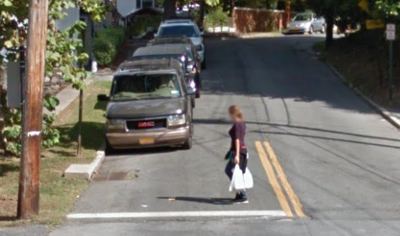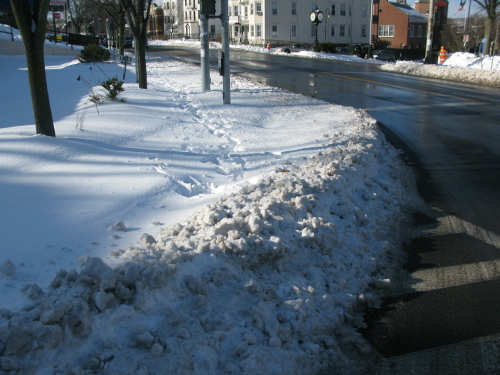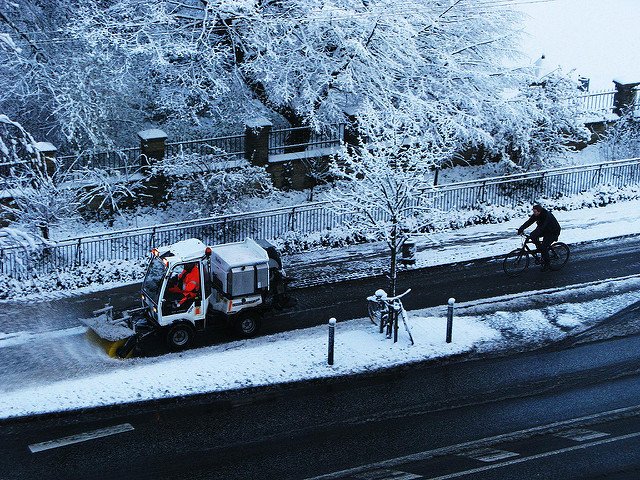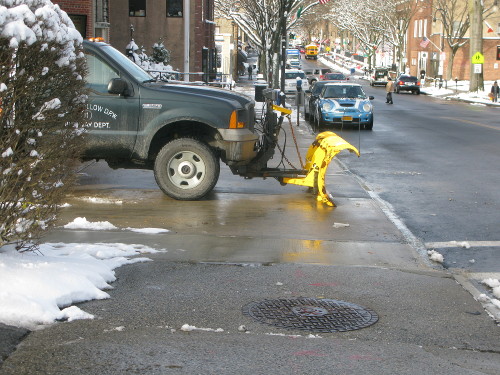October 6, 2019

Gordon Ave, a crucial route to school and the train, lacks sidewalks and isn't within 1/4 mile of a park or school.
The Village needs a plan for completing our sidewalk network, including ADA curb ramps at every corner. That plan should score locations to determine the order of implementation. Key considerations would be connections to key destinations, vehicle volumes, etc.

Snow filled crosswalk and sidewalk at the ex-Horseman Diner. This is a route for walking to the High School and Middle School.

Fixing potholes and paving roads is a municipal responsibility. So is plowing the streets. That's because it wouldn't get done if left up to adjacent property owners. And having the right of way smooth and clear helps the whole community.
The same concepts apply to sidewalks. Sidewalks are important public rights of way that need to be publicly maintained.
Despite what many people think, (most) sidewalks are public property.
The program could start gradually, prioritizing downtown and routes to school and work.

Sidewalks need to be safe and comfortable. They're neither when blocked (by garbage cans, shrubs, parked cars, construction). The Village needs a concerted campaign of education and enforcement to ensure walkways are clear at all times.
While most folks can negotiate around obstacles, some cant. People with mobility challenges only become disabled when society puts barriers in the way. (Barriers such as curbs and the other blockages mentioned above.)
Then there's the fact that 25% of households in Sleepy Hollow don't have a car, while another 40% have only one. Over 20% of Village residents are too young to drive. A chunk of folks are too infirm to drive.
Providing safe, convenient, reliable sidewalks provides everyone in our community access to jobs, food, school and friends. It boosts property values as well. The return on investment is tremendous.
Rochester, NY's snow removal program costs home owners about $40 per year. That's cheaper than hiring a teenager to shovel your walk a just few times. Syracuse, NY just began a pilot to clear 40 miles of sidewalk, which they anticipate costing $4,250 per mile.
Plus we need to account for avoiding the tremendous physical and financial tolls incurred by people injured slipping on icy sidewalks.
To remain within New York's tax cap, the process can be funded via a separate small fee, like garbage collection is. Some municipalities use parking fees to pay for such transportation improvements.
C-1e: Install/improve sidewalks within a quarter-mile of schools and parks and throughout the central village.
Read everything we've got on the Comprehensive Plan.
Other Authors:
biketarrytown.org | info@biketarrytown.org | B: @biketarrytown.bsky.social | F: @BikeTarrytn